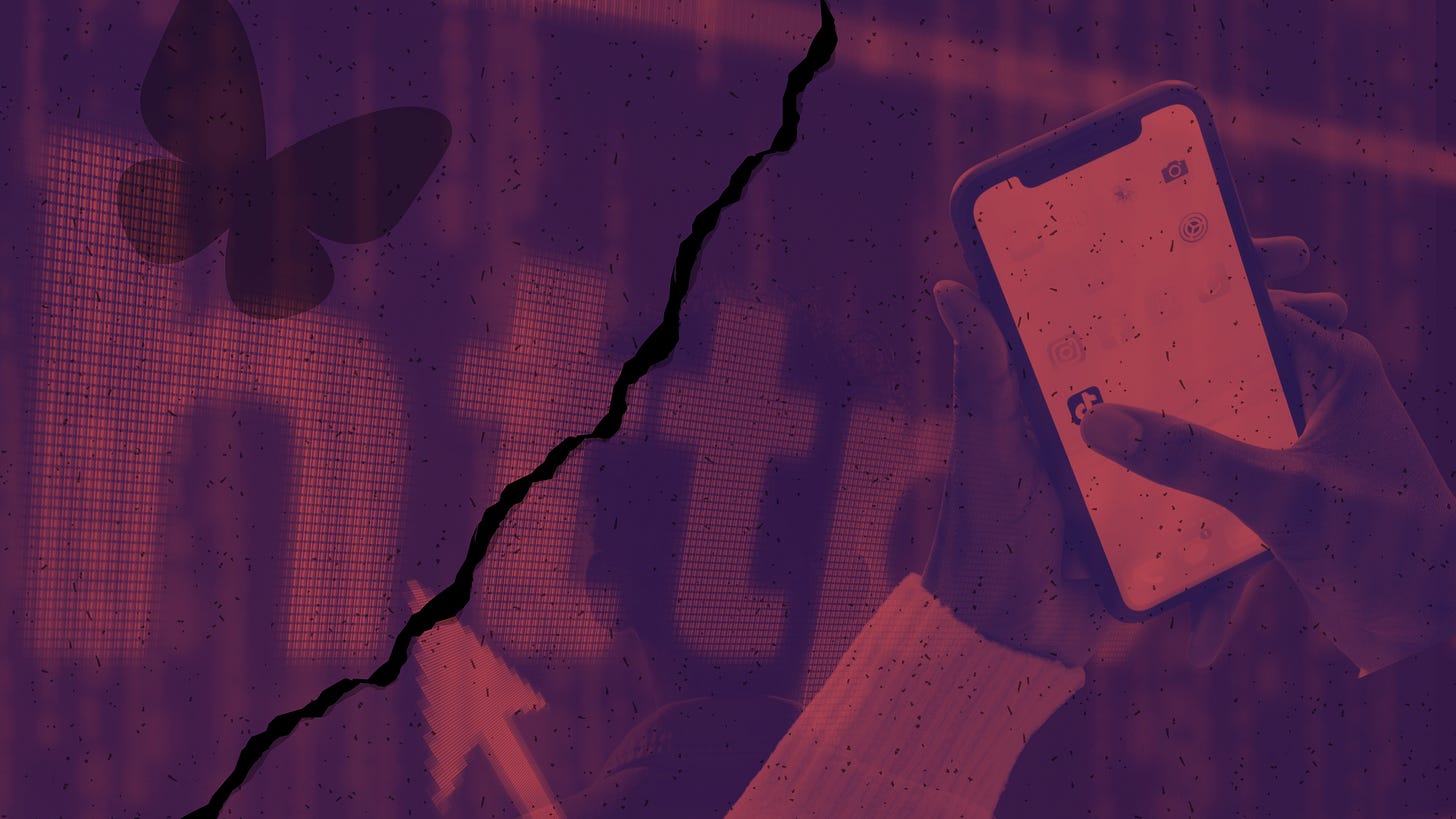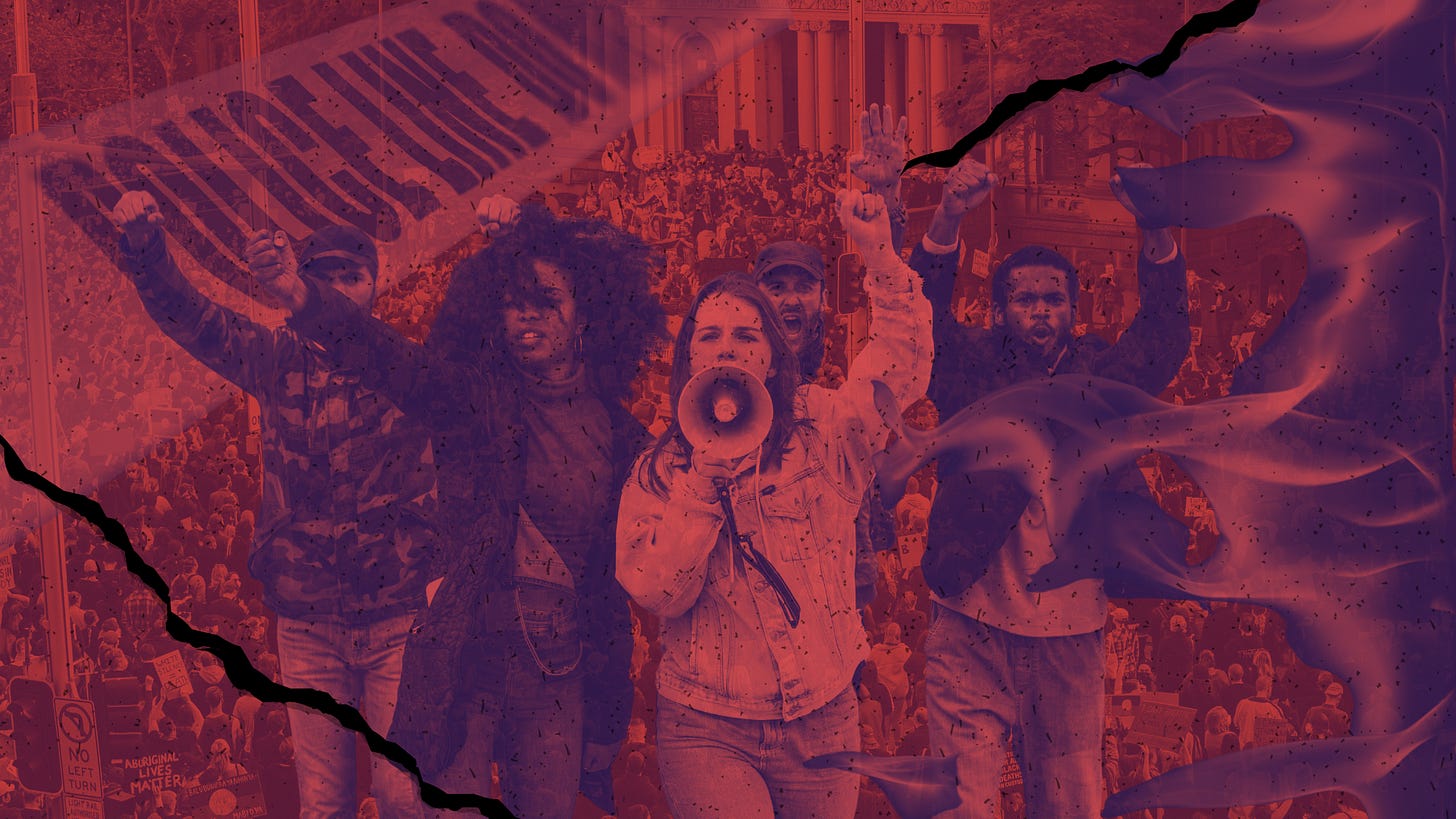UK Arrests Comedian & Turkey Blocks 300K Websites | The Free Flow 9/4/25
Irish comedian arrested over social media posts, dozens of teenage TikTok creators arrested in Egypt, over 300k websites blocked in Turkey, and more!
This Week At A Glance 🔎
— 🇬🇧 UK Arrests Comedian for Social Media Posts
— 🇺🇸 Federal Judge Strikes Down California Deepfake Law
— 🇹🇷 300K Websites Blocked in Turkey
— 🇪🇬 Egypt Arrests TikTokers
— 🇫🇷 Age-Verification Platform Exposes French Users’ Identities
First of All 🇺🇲
Congress Probes Wikimedia Over Alleged Bias
The House Oversight and Government Reform Committee has sent a letter requesting documents and communications from the Wikimedia Foundation to evaluate the company’s response to organized efforts to “inject bias” into Wikipedia entries.
About the Letter:
The letter claims the request is part of an investigation into “foreign operations and individuals at academic institutions subsidized by U.S. taxpayer dollars to influence public opinion.”
It requests information about “the tools and methods Wikipedia utilizes to identify and stop malicious conduct online that injects bias.”
Reports from the Anti-Defamation League about anti-Israel bias on Wikipedia and an Atlantic Council report on pro-Russia actors using the site to push anti-Ukrainian messaging are cited as reasons for the investigation.
The Digital Age 🤖
Another California’s Deepfake Law Falls on First Amendment Grounds
A federal judge has struck down California’s Assembly Bill 2839 restricting AI-generated deepfakes during elections, finding them unconstitutional under the First Amendment.
Background: In our August 14 edition, we covered U.S. District Judge John Mendez’s earlier ruling against California’s deepfake law, where he invalidated the measure on Section 230 grounds without reaching the free speech claims.
The New Ruling:
Judge Mendez has now gone further, striking down Assembly Bill 2839 outright on First Amendment grounds, ruling that California cannot preemptively censor political content, even if it is AI-generated or misleading.
He also entered judgment against Assembly Bill 2655, the labeling-and-takedown law, reiterating that platforms cannot be forced to remove third-party content.
Mendez wrote: “Just as the government may not dictate the canon of comedy, California cannot preemptively sterilize political content.”
Our Take: Courts are catching up with the patchwork of state AI laws, striking down those that are vaguely defined. Even in the age of deepfakes, government preemptively banning speech runs headfirst into the First Amendment. — Ashkhen Kazaryan
Age-Verification Law Takes Bluesky Out of Mississippi
After the Supreme Court rejected an emergency request to stop a Mississippi age-verification law, as mentioned in a previous Free Flow, the social media platform Bluesky has ceased services in the state.
Details:
“We think this law creates challenges that go beyond its child safety goals, and creates significant barriers that limit free speech and disproportionately harm smaller platforms and emerging technologies,” Bluesky said in its statement.
The company also said that compliance is too costly for their company, and noncompliance could result in fines up to $10,000 per violation.
Mississippi state representative Fabian Nelson said, “Acknowledging the potential challenges faced by smaller providers in complying with these standards, I am optimistic that BlueSky and the State of Mississippi will reach an amicable agreement.”
Our Take: Bluesky, which has over 30 million active users as of January 2025, exiting Mississippi underlines how compliance costs of Internet regulation are first and foremost hurting start-ups and mid-sized companies that are trying to carry innovation and free speech principles forward — Ashkhen Kazaryan
Moscow Court Charges Student Over Leningrad Joke
A Moscow court has charged Ilya Kostyakov, a student at the Russian State Social University, with “rehabilitation of Nazism” after he posted a video online joking about how citizens of Leningrad during the Nazi siege of the city in WWII did not have access to bubble tea.
Details:
In the video, which investigators say was posted on or before August 5, Kostyakov looks at the camera while the text reads “Just think…The people of Leningrad did without bubble tea for 3 years during the siege…”
On August 11, Kostyakov was arrested for 15 days on charges of petty hooliganism, before the Russian Investigative Committee opened a case against him for the video, which he pleaded guilty to.
More than 300k Websites Blocked in Turkey
A report from the Freedom of Expression Association (İFÖD), shows that Turkish authorities blocked access to more than 311,000 websites in 2024 — a sharp increase compared to 2023, in which 240,857 websites were blocked, and 2022, where 137,717 websites were blocked.
Context:
Despite a 2021 landmark ruling against general and uncontrolled internet blocking, the report also found that 5,740 news reports were blocked in 2024.
Since the adoption of Turkey’s Internet law No. 5651 in 2007, which empowers multiple agencies to order the takedown of online content, 1,264,506 websites and domain names have been blocked in the country.
270,000 URLs, 17,000 X accounts, 25,500 YouTube videos, 16,700 Facebook posts, and 16,000 Instagram posts have also been restricted under the law and other content moderation provisions.
Egypt Arrests Dozens of Teenage TikTokers for ‘Indecency’ and ‘Money Laundering’
Egyptian authorities have accused dozens of teenage TikTokers of a variety of crimes from ‘indecency’ to ‘money laundering’.
The Egyptian Initiative for Personal Rights has tracked at least 151 people charged under this provision since 2018.
Details:
If authorities find even a single piece of indecent content, an influencer’s income can be deemed illegal, and they can be charged with financial crimes.
Police have confiscated TikTokers’ devices, frozen assets, and imposed travel bans on these content creators.
Among those jailed is 19-year-old star Mariam Ayman (“Suzy El Ordonia”), who has over 9.4 million followers. She faces charges of distributing indecent content and laundering the equivalent of $470,000.
Prosecutions rely on a broadly worded 2018 cybercrime law criminalizing violations of “family values.”
The Brussels Effect: Europe and Beyond 🇪🇺
Irish Comedy Writer Graham Linehan Arrested in UK for Social Media Posts
Graham Linehan, co-creator of the sitcom Father Ted, was arrested at Heathrow Airport in London over social media posts about transgender people.
Details:
Linehan was detained by armed officers and questioned on suspicion of inciting violence after posts on X suggesting trans women in women-only spaces were “violent criminals” and advocating people “punch” them if authorities failed to act.
He has been released on bail under conditions barring him from posting on X.
He faces a separate trial this week on charges of harassment, which he denies.
Pushback from the London Government
The head of the Metropolitan police has called on the government to “change or clarify” the Public Order Act in response to Linehan’s arrest.
UK Health Secretary Wes Streeting has also said the laws “put more expectations on police” and “diluted the focus and priorities of the public,” adding that ministers “want the police to focus on policing the streets rather than tweets.”
Our Take: In 2023, British police arrested more than 30 people a day for grossly offensive, threatening, or obscene online messages. The arrest of Linehan clearly demonstrates that the UK has taken policing of political and satirical speech to an extreme that impacts the ability of citizens to speak their mind on the topics they care about — Jacob Mchangama
Age Verification in France Threatens Anonymity for Adult Use of Porn Websites
A report from the nonprofit AI Forensics shows that half of the porn websites in compliance with France’s online pornography regulations are not meeting the “double anonymity” standard, in which age verification only confirms a user is an adult and does not collect data on the websites they are visiting.
The Report:
Age verification service AgeGO receives requests that have code revealing the website being visited and the exact video the user is trying to access, according to the report.
This comes as more countries, including the U.S. and U.K., begin to require age confirmation to access adult content.
Our Take: We have so many real-life examples of government-mandated age verification achieving none of the goals it set to achieve while eradicating anonymous speech and chilling free expression — Ashkhen Kazaryan
Free Speech Recession 🌎
Eight People Killed in Protests Across Indonesia
Eight people have been killed since protests against low wages, tax hikes, and lawmakers’ pay took place across Indonesia beginning on August 25.
Details:
Protests escalated into rioting and looting after a police vehicle was driven into a crowded area, killing a motorcycle taxi driver.
In the city of Solo, a pedicab driver reportedly died from exposure to tear gas deployed by police at protests.
In the city of Yogyakarta, a student died after allegedly being beaten by police who were firing tear gas at demonstrators near the police headquarters.
Nigerian Mob Burns Woman Accused of Blaspheming the Prophet Muhammad
A food vendor was burned to death by a mob in northern Nigeria’s Niger state after her response to a man jokingly proposing to her was deemed blasphemous to the Prophet Muhammad by onlookers.
Mob Violence in Nigeria Over Blasphemy:
At least two other people have been lynched over blasphemy allegations in the last three years.
In 2022, Deborah Samuel, a student in Sokoto state, was beaten and burned alive after being accused of blasphemous remarks.
Last year, a butcher, Usman Buda, was stoned to death in the same state and under the same circumstances.
Our Take: Blasphemy bans are not only incompatible with any meaningful notion of freedom of expression, but they also increase the risk of violence and terrorism by providing legitimacy to intolerance of unorthodox and minority viewpoints — Jacob Mchangama
Belarus Designates Lawyer Association as ‘Extremist Formation’
Belarusian authorities have declared the Belarusian Association of Human Rights Lawyers an “extremist formation,” exposing alleged members to criminal prosecution and sentences up to 10 years in prison.
Details:
BAHRL is a formation of exiled Belarusian lawyers arbitrarily deprived of their right to practice law, and promotes independence in the legal sphere and the right to fair trials.
After the designation, the Ministry of Internal Affairs added six lawyers allegedly associated with it to a list of individuals involved in “extremist activities.”
Authorities have targeted lawyers who represent clients in politically motivated cases or denounce human rights abuses, subjecting them to license revocation, searches, fines, and arrests.
Ashley Haek is a communications coordinator and research assistant at The Future of Free Speech.
Ava Sjursen is a communications intern at The Future of Free Speech and a student at Boston College studying communications and political science.
Jacob Mchangama is the Executive Director of The Future of Free Speech and a research professor at Vanderbilt University. He is also a senior fellow at The Foundation for Individual Rights and Expression (FIRE) and the author of Free Speech: A History From Socrates to Social Media.
Ashkhen Kazaryan is a Senior Legal Fellow at The Future of Free Speech, where she leads initiatives to protect free expression and shape policies that uphold the First Amendment in the digital age.










